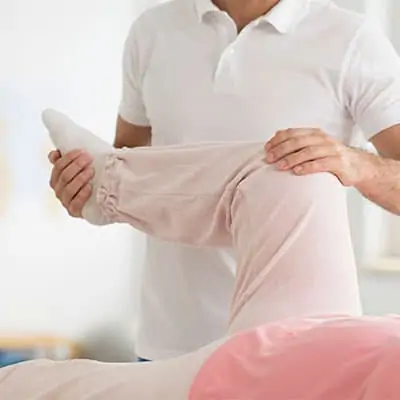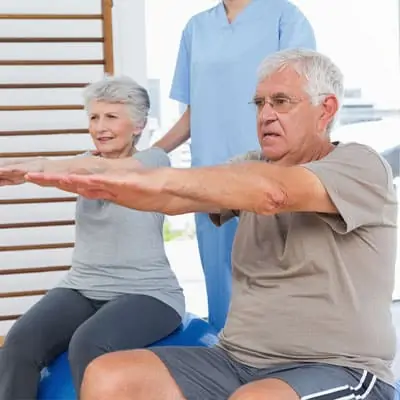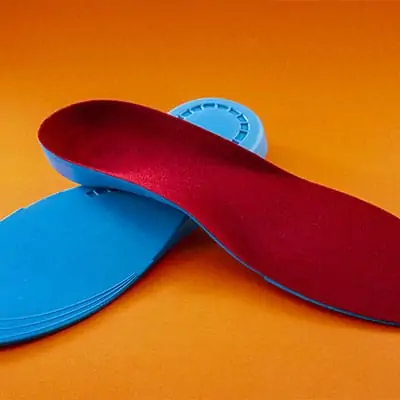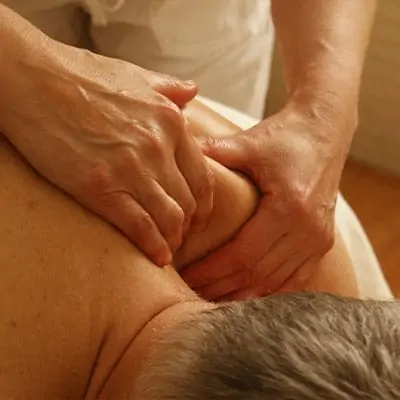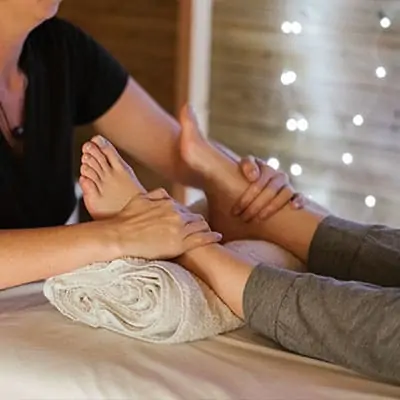At Cambridge Physiotherapy & Rehab Center, we specialize in personalized hip osteoarthritis treatments designed to ease pain, enhance mobility and improve quality of life. Experience advanced, compassionate care in Cambridge.
Understanding Hip Osteoarthritis
Hip osteoarthritis is a degenerative joint disease characterized by the wearing down of cartilage in the hip joint, leading to pain, stiffness, and reduced mobility. It’s a condition that can significantly impact daily activities and overall well-being.
Causes of Hip Osteoarthritis
- Age-Related Wear and Tear: This is the most common cause, as the cartilage in the hip joint gradually deteriorates over time.
- Injury or Trauma: Previous injuries to the hip, such as fractures or dislocations, can lead to the development of osteoarthritis.
- Genetic Factors: A family history of osteoarthritis can increase the risk of developing the condition.
- Obesity: Excess weight puts additional pressure on the hip joint, accelerating cartilage wear.
Symptoms of Hip Osteoarthritis
- Joint Pain and Stiffness: Especially noted during activities such as walking or after prolonged sitting.
- Reduced Mobility: Hip osteoarthritis causes limitations in the range of motion of the hip joint, affecting daily activities.
- Crepitus: A grinding noise or sensation when moving the hip due to the rough surfaces within the joint.
Utilizing Physiotherapy for Hip Osteoarthritis
At Cambridge Physiotherapy & Rehab Center, we understand the challenges posed by hip osteoarthritis. We are dedicated to offering a treatment approach that not only alleviates symptoms but also targets the underlying causes of the condition. Our primary mode of treatment is physiotherapy, supported by a range of complementary therapies tailored to each individual’s needs.
Comprehensive Physiotherapy Programs
Physiotherapy is the cornerstone of our treatment approach for hip osteoarthritis. Our team of physiotherapists develops personalized programs that incorporate:
- Strengthening Exercises: Focus on building the strength of the muscles surrounding the hip joint, particularly the quadriceps, hamstrings, and gluteal muscles. Stronger muscles can better support the hip joint, reducing the load on the arthritic area and slowing the progression of osteoarthritis.
- Flexibility and Range of Motion Exercises: Aimed at improving the flexibility of the hip joint and surrounding muscles. Increased range of motion can help reduce stiffness and improve functional abilities, making daily activities less painful.
- Low-Impact Aerobic Conditioning: Encourages activities such as walking, swimming, or cycling to increase endurance and cardiovascular health without putting excessive stress on the hip joints.
- Manual Therapy: Techniques such as soft tissue mobilization and joint mobilization to improve joint movement and reduce pain.
- Pain Management Techniques: Utilizing modalities like heat to relax muscles and increase circulation, and cold to reduce inflammation and numb the painful area.
Lifestyle Modifications
We provide guidance on making sustainable lifestyle changes to support the treatment process:
- Weight Management: Advice on nutrition and exercise to achieve and maintain a healthy weight, reducing the stress on the hip joints.
- Activity Modification: Recommendations on how to modify activities and adopt new techniques to avoid aggravating the hip joint while staying active.
- Ergonomic Adjustments: Tips for creating a hip-friendly environment at home and work to support recovery and prevent further joint damage.
Your Partner in Recovery
Choosing Cambridge Physiotherapy & Rehab Center for your hip osteoarthritis treatment in Cambridge means prioritizing your health with a team that cares deeply about your recovery. Our commitment to your well-being is reflected in:
- Personalized Care Plans: Developed to meet your unique health needs and recovery goals.
- Expert Team: Our healthcare practitioners are leaders in their fields, bringing years of experience in managing osteoarthritis effectively.
- Cutting-Edge Treatments: We stay at the forefront of medical advancements to offer you the best possible outcomes.
- Holistic Support: Beyond physical treatment, we provide the guidance and support you need to make informed decisions about your health and lifestyle.
Other Services We Offer
Our clinic offers a wide range of services to support your health journey beyond hip osteoarthritis treatment. Whether you’re looking for rehabilitation from an injury, management of a chronic condition, or preventive care to maintain your health, Cambridge Physiotherapy & Rehab Center has you covered.
Begin Your Journey to Improved Mobility Today
If hip osteoarthritis is affecting your quality of life, Cambridge Physiotherapy & Rehab Center in Cambridge is here to help. Contact us today to learn more about our tailored treatment options and to schedule your appointment. Together, we can transform your life, one step at a time.
Don’t Let These Hip Conditions Keep You Down
|
|
Hip Osteoarthritis Treatment Cambridge FAQs
Can Hip Osteoarthritis Lead to Other Health Issues?
While hip osteoarthritis primarily affects the joints, it can lead to other health issues due to the limitations it places on physical activity. Reduced mobility can contribute to a sedentary lifestyle, increasing the risk of obesity, cardiovascular disease, and type 2 diabetes. Additionally, chronic pain and reduced activity levels can impact mental health, leading to increased risk of depression and anxiety. Addressing hip osteoarthritis with a comprehensive treatment plan can help mitigate these risks by improving mobility, reducing pain, and encouraging a more active and healthy lifestyle.
What Lifestyle Changes Can Help Manage Hip Osteoarthritis?
Making specific lifestyle changes can significantly impact the management of hip osteoarthritis. These include maintaining a healthy weight to reduce stress on the hip joints, engaging in low-impact exercises such as swimming or cycling to strengthen the muscles around the joints without exacerbating pain, and adopting a diet rich in anti-inflammatory foods to help reduce joint inflammation. Additionally, incorporating daily stretching routines can improve flexibility and reduce stiffness. It’s also beneficial to use assistive devices as needed to minimize pain during activities and to practice good posture to distribute body weight evenly and reduce strain on the hips.
Can Hip Osteoarthritis Ever Fully Heal?
Hip osteoarthritis is a degenerative condition, meaning it tends to progress over time. While there’s currently no cure for osteoarthritis, the right combination of treatments can significantly manage symptoms and improve joint function. Efforts are primarily focused on slowing the progression of the disease, relieving discomfort, and maintaining mobility and quality of life.
How Can I Stay Active with Hip Osteoarthritis?
Staying active with hip osteoarthritis involves choosing low-impact exercises that minimize stress on the hip joints while promoting strength, flexibility, and cardiovascular health. Walking, swimming, and cycling are excellent options as they provide aerobic exercise without placing undue strain on the hips. Water aerobics and gentle yoga can also be beneficial. It’s important to start slowly and gradually increase the intensity and duration of activities to avoid overexertion. Working with a physiotherapist to develop an exercise plan tailored to your specific needs and limitations can ensure you stay active safely.
Cambridge Physiotherapy & Rehab Center
895 Langs Dr Unit #2, Cambridge, ON N3H 5T6, Canada
(519) 219 5428
Hours:
Monday: 9 AM–5 PM
Tuesday: 9 AM–8 PM
Wednesday: 9 AM–5 PM
Thursday: 9 AM–8 PM
Friday: 9 AM–5 PM



